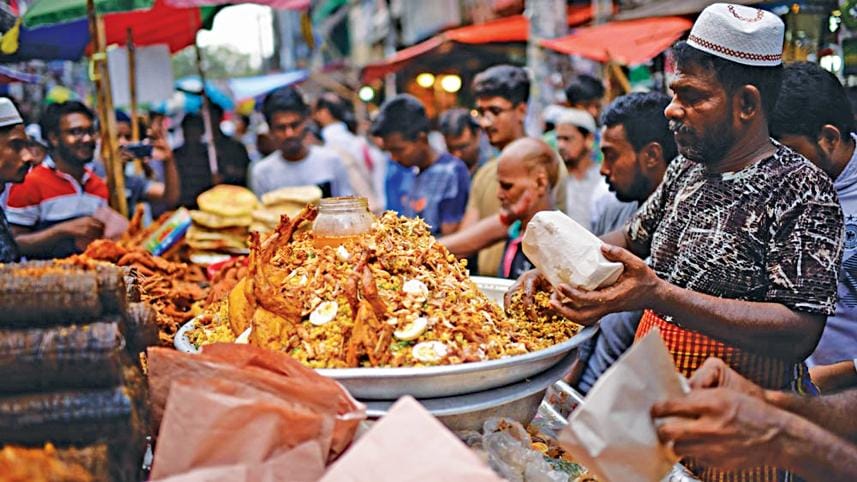Ramadan bazaar food safety: Battling high temperatures for hygiene and health

Ramadan bazaars are a cherished part of the fasting month, offering a variety of meals for iftar. However, rising temperatures due to climate change are increasing food safety risks, making it challenging for vendors to maintain hygiene and prevent foodborne illnesses.
Food safety challenges in ramadan bazaars: Extreme heat accelerates food spoilage, creating ideal conditions for bacterial growth. Vendors preparing food in open-air markets often lack refrigeration, making perishable items like meat, dairy, and seafood vulnerable to contamination. Harmful bacteria such as Salmonella and E. coli multiply rapidly in warm temperatures, posing health risks to consumers.
High temperatures also increase the risk of cross-contamination. Food handlers working in the heat may sweat excessively, and improper hygiene practices—such as infrequent handwashing or using contaminated utensils—can further heighten foodborne illness risks. Additionally, storing cooked food at unsafe temperatures for extended periods allows bacteria to thrive.
Health risks for consumers: Foodborne illnesses peak during warmer months, and crowded Ramadan bazaars amplify the risk of outbreaks. Contaminated food can cause gastrointestinal issues like diarrhoea and vomiting, which are particularly dangerous for children, the elderly, and immunocompromised individuals.
Dehydration worsens food poisoning symptoms, making food safety precautions even more critical. Fasting individuals, already at risk of dehydration due to prolonged hours without water, may experience severe effects if they consume spoilt food.
Implementing adaptation strategies for vendors: To combat high temperatures, vendors must take proactive food safety measures. Proper temperature control is essential—portable refrigeration units, insulated storage containers, and ice packs should be used to keep perishable ingredients fresh. Placing storage in shaded areas or using reflective materials can further reduce heat exposure.
Hygiene practices must be strictly followed. Vendors should wash hands frequently with soap and water or use alcohol-based sanitisers if running water is unavailable. Disposable gloves should be changed regularly, and food preparation surfaces must be sanitised after each use. Wearing caps and aprons prevents sweat from contaminating food.
Menu adjustments can also improve food safety. Vendors should incorporate heat-resistant ingredients like dried legumes and grains while limiting perishable items. Fresh produce should be stored in cool, ventilated spaces, and cooked meals must be served promptly or kept above 60°C to prevent bacterial growth.
Local authorities play a crucial role in supporting vendors. Mandatory food safety training before Ramadan can help vendors understand safe food handling. Providing shared refrigeration units, cooling stations, and shaded canopies can mitigate the effects of extreme heat. Regular health inspections should enforce compliance with food safety regulations.
By systematically implementing these strategies, vendors can reduce foodborne risks and ensure consumers have access to safe, hygienic meals throughout Ramadan.
Ensuring safe and enjoyable iftar meals: As climate change intensifies heatwaves, safeguarding food safety in Ramadan bazaars is more urgent than ever. Consumers can also protect themselves by choosing freshly prepared meals, observing hygiene practices, and buying from vendors who maintain cleanliness.
With vendor adaptations, regulatory support, and consumer awareness, Ramadan bazaars can remain a beloved tradition while ensuring public health. Addressing high-temperature challenges will help create a safer food environment, allowing families to enjoy their iftar meals with peace of mind.
The writer is a public health specialist. E-mail: safrinarahman16@gmail.com



 For all latest news, follow The Daily Star's Google News channel.
For all latest news, follow The Daily Star's Google News channel.
Comments